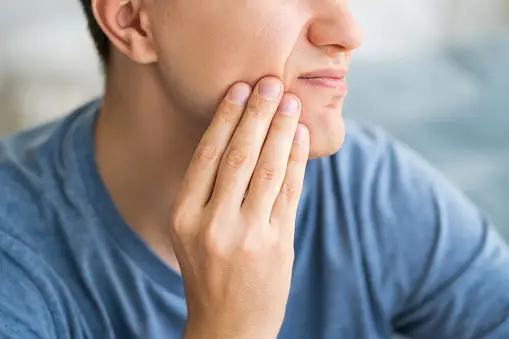The maintenance of good dental health is crucial for general well-being. Cavity prevention is one of the main issues with oral care. Dental caries, sometimes referred to as cavities, are small holes or openings that form on the hard surface of your teeth and are permanently destroyed. If ignored, they can result in discomfort, sensitivity, and more serious dental issues. However, you can effectively guard your teeth against cavities by implementing a few straightforward habits. Let’s look at some interesting suggestions given by a dentist in Karachi to keep your mouth healthy and cavity-free.
1- Brush Your Teeth Regularly
Good oral hygiene starts with consistent, correct brushing. Use fluoride toothpaste to brush your teeth at least twice a day. Fluoride strengthens the enamel, increasing its resistance against bacterial acid assaults. Keep in mind to brush all tooth surfaces and the gum line gently in a circular motion with a soft-bristled toothbrush. A new toothbrush should be used every three to four months, or whenever the bristles start to deteriorate.
2- Floss Daily
Daily brushing cannot completely remove all the food and plaque that has become caught between your teeth. To get to the areas that your toothbrush can’t, flossing is essential. Make it a routine to floss, preferably just before going to bed, at least once every day. To remove plaque and debris, gently form a “C” shape with the floss and slide it between your teeth. Flossing keeps your gums healthy and helps prevent cavities between the teeth. It is essential not to skip the process of flossing when practicing good dental hygiene. It involves cleaning regions that a toothbrush can’t reach between the teeth and along the gum line with a thin, thread-like substance. Even though it might seem like a small effort, flossing every day has many advantages and helps prevent cavities.
3- Limit Sugary Foods and Drinks
The main cause of cavities is consuming too much sugar. Bacteria in the mouth produce acids as they feed on sugar, which erodes tooth enamel. Reduce the amount of sugary meals and beverages you consume, such as desserts, sodas, and candies. If you do eat them, make an effort to do it at dinner rather than as a snack. After consuming sugary foods or beverages, you should also rinse your mouth with water to help remove any remaining sugars.
4- Chew Sugar-Free Gum
Especially after meals, chewing sugar-free gum can help keep your teeth healthy and prevent cavities. Gum stimulates saliva production, which serves as a natural defense against acid attacks. Saliva assists in washing away food particles, neutralizing acids, and remineralizing dental enamel. Try to find gum that contains xylitol, a sugar replacement that has been found to improve oral health.
5- Drink Plenty of Water
Water is excellent for your dental hygiene in addition to being necessary for general wellness. Fluoridated water is beneficial for strengthening teeth and preventing cavities. Water also promotes saliva production, which helps to maintain a healthy mouth environment and wash away food particles. Drinking water throughout the day should become a habit, especially after meals or snacks. Water is excellent for your dental hygiene in addition to being necessary for general wellness.
6- Floss with fluoride
A fluoride mouthwash can add an extra layer of cavity defense to your daily dental hygiene regimen. After brushing and flossing, rinse your mouth with a fluoride mouthwash to help strengthen tooth enamel and lower the chance of cavities. To ensure that mouthwash has a possible impact on your teeth, do not rinse your mouth out with water right away.
7- Visit Your Dentist Regularly
For the early detection and prevention of cavities, routine dental examinations are essential. At least twice a year, or as advised by your oral healthcare specialist, schedule routine dental visits. Professionals remove plaque and tartar deposits, preserving the health of your gums and teeth. Additionally, your dentist can evaluate your dental health and offer you individualized guidance to support you in maintaining a cavity-free smile.
8- Consider Dental Sealants
Your rear teeth (molars and premolars) chewing surfaces can be protected with dental sealants. Due to their deep grooves and difficult-to-reach locations, these teeth are especially vulnerable to cavities. Cavities are less likely to develop because sealants provide a barrier that keeps food particles and bacteria from getting stuck. Consult your dentist to determine if dental sealants are a good option for you or your kid’s health.
Conclusion
By paying attention to these useful ideas, you can greatly lower your risk of having cavities, which can be an unpleasant and expensive dental issue. Consider getting dental sealants, restricting your intake of sugary foods and beverages, chewing sugar-free gum, drinking lots of water, using a fluoride mouthwash, and remembering to brush and floss frequently. You may have a healthy, cavity-free smile for years to come if you incorporate these habits into your daily routine and prioritize oral health.
